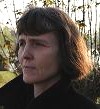|
|
|
SCIENTIFIC PROGRAMS AND ACTIVITIES |
|||||||||||||||||||||||||||||||||||||||||||||||||
| February 18, 2026 |
|
||||||||||||||||||||||||||||||||||||||||||||||||||
To be informed of when the registration and travel support application opens please subscribe to the Fields maillist. The program will start with an introductory summer school and center
around four workshops on the following topics: July 2 to August 30, 2013
|
|||||||||||||||||||||||||||||||||||||||||||||||||||
| September
9-13, 2013:
Concentrated Graduate Course preceeding the Workshop 1 on Modular Forms around String Theory |
 |
|
| September 16-20, 2013 | ||
| Workshop
on Modular forms around string theory Principal Organizers: Charles F. Doran, Matthias Schütt and NorikoYui |
||
|
|
October
7-11, 2013: Concentrated Graduate Course preceeding the Workshop 2 on Enumerative geometry and Calabi–Yau varieties |
|
| October 15-19, 2013 | ||
 |
Workshop
on Enumerative geometry and Calabi–Yau varieties Principal Organizers: Mark Gross, Radu Laza, Jaume Gomis, Shing-Tung Yau. Topics : Algebraic geometry, Symplectic geometry, Tropical geometry. Note: Workshops 2 & 3 will be organized jointly with the Perimeter Institute. In order to ease participation in both workshops, they will be held back-to-back, one at the Fields Institute and the other at the Perimeter Institute. |
|
|
|
||
| November
11-15, 2013 Concentrated Graduate Course on Hodge Theory in String Theory |
||
| November 18-22, 2013 | ||
| Workshop
on Hodge Theory in String Theory a joint workshop with PIMS CRG Program “Geometry and Physics” Principal Organizers: Charles F. Doran, David Morrison, Radu Laza, Johannes Walcher. |
||
Seminars and colloquia
In-between workshops we will run several regular seminars and colloquia. There will be a weekly research seminar aimed at members and postdoctoral fellows. It will be accompanied by study seminars (mainly for postdocs and students) and mini-symposia as the need arises. Colloquia will be organized on a roughly biweekly schedule with the possible exception of workshops.
Special Lectures
Distinguished Lecture Series
Maxim Kontsevich, Institut des Hautes Etudes Scientifiques
Coxeter Lecture Series
Claire Voisin, CNRS, Centre de mathematiques Laurent SchwartzPostdoctoral Fellows and Program Visitors
The Thematic Program on Calabi-Yau Varieties:Arithmetic, Geometry and Physics is pleased to welcome the following Postdoctoral Fellows to the Program:
Sara Angela Filippini, PhD (Universita' degli Studi dell'Insubria)
Douglas Overholser, PhD (University of California, San Diego)
Andrija Perunicic, PhD (Brandeis University)
Simon Rose, PhD (University of British Columbia)
Helge Ruddat, PhD (Johannes Gutenberg-Universität Mainz)
Michel van Garrel, PhD (California Institute of Technology)Program Participants requesting support or office space
All scientific events are open to the mathematical sciences community. Visitors who are interested in office space or funding are requested to apply by filling out the application form.
Additional support is available to support junior US visitors to this program.
Fields scientific programs are devoted to research in the mathematical sciences, and enhanced graduate and post-doctoral training opportunities. Part of the mandate of the Institute is to broaden and enlarge the community, and to encourage the participation of women and members of visible minority groups in our scientific programs.
For additional information contact thematic(PUT_AT_SIGN_HERE)fields.utoronto.ca





